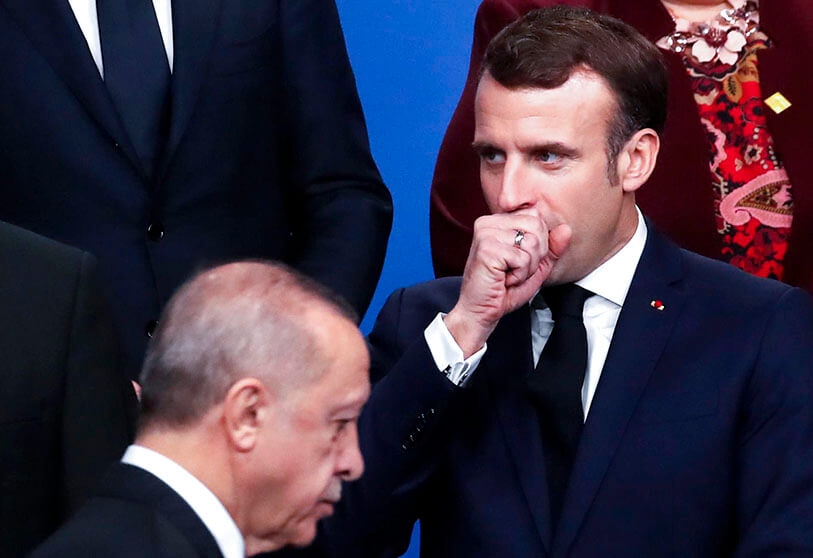Turkey's Erdogan calls on citizens to boycott French goods

Turkish President Recep Tayyip Erdogan called on Monday for Turks never to buy French goods, as he continued his sharp criticism of his French counterpart Emmanuel Macron over his attitude towards Muslims.
Erdogan said on Saturday that Macron had a problem with Muslims and needed mental checks - a rebuke that caused France to recall its ambassador from Ankara.
Stay informed with MEE's newsletters
Sign up to get the latest alerts, insights and analysis, starting with Turkey Unpacked
He made similar comments the next day and again on Monday in a speech in Ankara.
"Just like they say 'Don't buy goods with Turkish brands' in France, I am calling on all my citizens from here to never help French brands or buy them," Erdogan said.
France is the 10th biggest source of imports into Turkey and the seventh biggest market for Turkey's exports, according to the Turkish Statistical Institute.
French cars are among the best-selling vehicles in Turkey.
French goods have already been removed from supermarket shelves in Qatar and Kuwait, among other Gulf states. In Syria, people have burned pictures of Macron and French flags have been set on fire in the Libyan capital Tripoli.
'Will not give up cartoons'
Macron has pledged to fight "Islamist separatism", saying that it was threatening to take over some Muslim communities in France.
The country has been shaken by the beheading of a teacher by an 18-year-old, Abdullakh Anzorov, who said he was avenging the use of cartoons of the Prophet Muhammad in a class on freedom of expression.
Turkey on Monday condemned the "monstrous murder" of Samuel Paty after France had expressed disappointment over the lack of an official condemnation by Ankara.
"We strongly condemn the monstrous murder of Samuel Paty in France and we reject this barbarism. There is nothing legitimate about this murder," Erdogan's spokesman Ibrahim Kalin tweeted.
Depictions of the prophet are seen as offensive by many Muslims, but in France such cartoons are seen as part of a proud anticlerical tradition dating back to the Revolution.
In the aftermath of Paty's murder, Macron issued a passionate defence of free speech and France's secular values, vowing that the country "will not give up cartoons".
'Anti-Islam' agenda
European leaders must put an end to Macron's "anti-Islam" agenda, Erdogan said in a speech at the start of a week of activities in Turkey to commemorate the birthday of the prophet.
The Turkish president also said Muslims in Europe were subjected to a "lynch campaign" like Jews before World War Two and accused some western leaders of championing Islamophobia, calling them "fascists".
"You are in a real sense fascists. You are in a real sense the links in the chain of Nazism," said Erdogan, without giving any names.
"Muslims are now subjected to a lynch campaign similar to that against Jews in Europe before World War Two."
Turkey and France are both members of the Nato military alliance, but have been at odds over issues including Syria and Libya, maritime jurisdiction in the eastern Mediterranean, and the conflict in Nagorno-Karabakh.
European leaders back Macron
German Chancellor Angela Merkel condemned Erdogan's "defamatory" remarks about the French leader.
The prime ministers of the Netherlands and Greece also expressed support for France, as did European Commission president Ursula von der Leyen.
"President Erdogan's words addressing President @EmmanuelMacron are unacceptable," Dutch Prime Minister Mark Rutte tweeted, adding that the Netherlands stood "for the freedom of speech and against extremism and radicalism".
Middle East Eye delivers independent and unrivalled coverage and analysis of the Middle East, North Africa and beyond. To learn more about republishing this content and the associated fees, please fill out this form. More about MEE can be found here.






